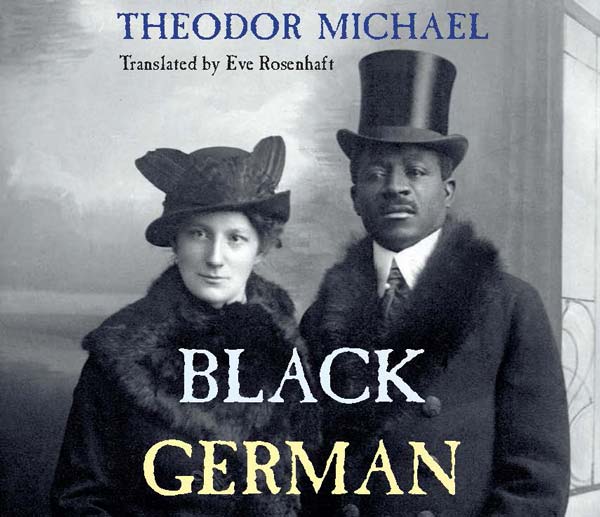Black German - researching the moving story of Theodor Michael
Posted on: 27 April 2017 by Eve Rosenhaft in 2017 posts

“There were Black Germans?”
My students are always surprised to learn that there were and are a community of African immigrants and Afro-Germans that dates back to the nineteenth century - and sometimes earlier.
I have been researching the history of Black people in Germany since the late 1990s. The book 'Black German', is going to be launched on 2 May and features the compelling memoirs of Theodor Wonja Michael, which I have translated into English for the first time.
These memoirs offer a fascinating insight into the life of a man whose warm personality and courage really shine through.
Theodor's story
Theodor Michael is a member of the first generation of native-born Afro-Germans – possibly the last surviving one. He was born in Berlin in 1925. His father was the Cameroonian Theophilus Wonja Michael, one of a substantial number of men who travelled to Germany from what were then German colonies in Africa, and who remained in Germany after it lost its colonial empire following the First World War. His mother was Martha Wegner, a white German.
Theodor Michael lived through the social and political upheavals that Germany experienced in the twentieth century – the rise of Nazism and its ‘racial state’, the Second World War, post-war reconstruction in West Germany and reunification after 1989. He experienced the hurts of racism, but he also benefited from the opportunities offered by the post-war world to develop a career as a journalist and Africanist, and he was ‘present at the birth’ both of the pan-African movement of the 1960s and of Afro-German activism since the 1980s.
An important chapter in global black history
The story of Theodor Michael’s generation, and of their parents, is an important chapter in global black history and also in German history, as we come to acknowledge that Germany was involved in the European colonial project of the 19th and 20th centuries and that the colonial experience left its mark on Germany even though it was relatively brief. But we have very few memoirs or other forms of testimony from the individuals themselves. Theodor Michael’s autobiography is particularly valuable because of the breadth of his experience and because, at the end of a long life, he is quite self-conscious in reflecting on the politics of race and identity.
Getting to know Theodor
I love the leitmotif that Theodor adopts to characterise himself ‘a German in a grass skirt’ – reflecting on his very earliest experiences in ‘show business’, when he performed as an African native in ‘human menageries ’with other members of his family. In terms of the overall narrative, I am most fascinated by his life before and after the Second World War. Before the war he worked in his foster-parents’ circus, and he gives us a fine inside view of how circuses operated. In the post-war period, the story he tells with great candour of how his marriage to a (white) refugee woman survived the stresses of poverty, racism and his mental and physical ill health is both moving and illuminating.
Find out more
- Book launch for 'Black German', Tuesday 2 May at 5pm
- Buy the book online from Liverpool University Press
(Staff and students receive a 35% discount, to order, contact janmar@liv.ac.uk ) - Find out more about our research projects
Keywords: Research, German, First World War, Book, Liverpool University, Liverpool.